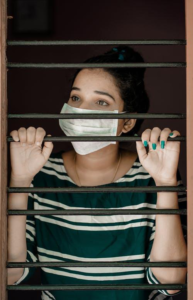
The COVID-19 pandemic affects people in 2 ways – the first is, of course, the fear of contracting the disease itself. The other even more widespread effect, is the fear of infection and the stress that the lockdown measures have placed on everyone. The stress is insidious and can affect the way people think, behave, the way they handle relationships and their ability to perform socially and professionally in various ways. This often occurs without the victims themselves realizing what is happening to them.
Signs of COVID-19 Stress
The Centers for Disease Control and Prevention (CDC) in the USA is a leading authority on the pandemic, its effects and how to deal with them. It has identified the following initial signs of COVID-19 stress and tension:
Those Likely to Suffer the Most From Stress:
COVID-19 stress, tension and anxiety can affect anyone, but those most likely to suffer from it include:
Coping with the Stress
The CDC suggests the following to help in coping with the stress:
Get Help
What the CDC says applies to people in general. The effects of COVID-19 stress and the symptoms will vary from person to person. Knowing if stress is affecting you is often not easy. If you notice any physical, mental or emotional change in yourself or in the way you interact with others, how they respond to you or how you deal with everyday situations, it may be that you are a victim of COVID-19 stress.
Talking to friends and loved ones about what you are feeling may help, but it is often not enough. What an individual appreciates about the stress he or she is undergoing usually only touches the surface. Proper treatment of stress involves getting to the root of the problem. To find a way to deal with the stress and to overcome it to return to a stable pre-COVID-19 life, professional help is needed. Online professional counselling from qualified experts is the right way to beat the stress.
